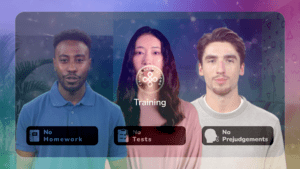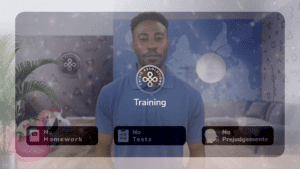How to navigate and influence different systems (such as organizational structures, policies or norms) that affect our lives.
Narrative
Welcome to Crisis Resolutions, a podcast where we explore how to deal with life’s challenges through good practices and without prejudice. I’m your host, and in today’s episode, we’ll be discussing the flexibility of systems.
What do we mean by systems? Systems are the structures, policies, or norms that shape our lives. They can be formal or informal, large or small, visible or invisible. For example, a system can be your family, your workplace, your community, your country, or even yourself.
Why do we need to be flexible with systems? Because systems are not static. They change over time and interact with each other. Sometimes they can create conflicts or crises that affect us personally or as a group. For example, a system can be disrupted by a natural disaster, a political upheaval, a technological innovation, or a personal crisis.
How can we navigate and influence the different systems that affect our lives? Here are some tips based on research and experience:
- Recognize that all systems have biased perceptions. We tend to see our own system as fair and rational, and other systems as unfair and irrational. This can lead to misunderstandings and mistrust. To overcome this bias, we need to try to see the situation from different perspectives. We can do this by asking questions, actively listening, and empathizing with others.
- Avoid escalating tensions with threats and provocative moves. When we feel threatened or ignored by another system, we may be tempted to make ultimatums or take drastic actions. This can backfire and make the situation worse. Instead of escalating the conflict, we should try to de-escalate it by finding common ground, expressing our interests rather than our positions, and making concessions when appropriate.
- Overcome an “us versus them” mentality. When we strongly identify with our own system, we may develop an in-group bias that favors our own group over others. This can create hostility and prejudice toward out-groups. To overcome this mentality, we need to expand our sense of identity and belonging. We can do this by creating cross-system connections, finding shared values, and celebrating diversity.
- Separate sacred from pseudo-sacred issues. Sometimes we may face a conflict that involves core values that we consider sacred or non-negotiable. These values are often related to our identity, morality, or spirituality. In these cases, it may be very difficult to compromise or change our views. However, sometimes what we think is sacred may actually be pseudo-sacred, meaning that it is not really essential for us, but rather a way of expressing our emotions or preferences. To separate sacred from pseudo-sacred issues, we need to examine our underlying motivations and assumptions, clarify what is truly important for us, and respect what is truly important for others.
- Adapt to changing circumstances. Systems are dynamic and complex. They evolve over time in response to internal and external factors. Sometimes they may undergo sudden or radical changes that require us to adjust quickly. To adapt to changing circumstances, we need to be flexible in our thinking and behavior, embrace uncertainty as an opportunity for learning and innovation, and seek feedback and support.
These are some ways in which we can practice flexibility of systems during times of crisis. By doing so, we can not only survive but also thrive in a changing world.
Thank you for listening to Crisis Resolutions.




